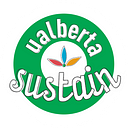How you switched to organic, fair trade coffee without realizing it
Dolores March wants you to fall in love — with a coffee.
It all started when a group of students approached her about bringing more fair trade products to the University of Alberta. Serendipity took over, and just a few months later she met John Darch.
Darch is a Vancouver businessman with an English lilt who spent his life working in Thailand’s mining industry. In the early 2000s, Darch reinvented himself as the Canadian face of Doi Chaang Coffee Company, whose coffee he markets exclusively in North America and the U.K.
“John Darch — he came and met with me, told me the story of Doi Chaang. And I will now do anything and everything I can to promote it,” says March, director of Hospitality Services.
To start, she is now exclusively serving Doi Chaang coffee in University of Alberta residences, Lister Conference Centre, and at catered events across campus. “And all the little outlets that said ‘serving freshly brewed Starbucks,’ those will now be Doi Chaang.”
She really loves this coffee.
For one thing, the beans are USDA-certified organic, which means no petrochemicals were used for fertilizer or pest control. It’s also Fairtrade-certified, which means the producers were paid above market prices. Actually, it goes beyond Fairtrade standards, giving farmers a 50 per cent ownership stake in the company’s North American arm.
“People love coffee. We’re a coffee country. So I think it’s important that if the university is going to provide it, we provide something that’s sustainable, that’s organic, that’s beyond Fairtrade,” says March.
Oh, and it tastes great. Just in case you were worried.
“The coffee’s fantastic. But it’s the story behind it — about education and helping a community be self-sufficient — that really resonates with me,” says March.
The community behind the coffee
As a trained teacher, March was fascinated by the tale of Doi Chaang’s origins in a 15-year-old girl’s school project. At a time when her whole village was struggling to sell their coffee beans, young Apa made more money selling the brewed coffee at a school event than her family made selling 20 kg of the beans at market.
The story of Doi Chaang’s farmers will resonate with anyone who has confronted the ruinous effects of colonization and export-led development. Most of the farmers are Akha, an indigenous people living in Southeast Asia’s higher elevations. Like many “hill tribes,” the Akha became involved in growing opium in the 1950s. Thailand’s government responded by encouraging farmers to switch from opium to exportable cash crops, including coffee.
These early agricultural experiments were less than successful. Export-led development brought further deforestation and chemical pesticides, and inexperienced these farmers were often gouged by unscrupulous traders. Many Akha were left in poverty, some heading to the cities and many entering the sex trade (where they faced endemic HIV rates).
Doi Chaang was set up in the early 2000s to seek a fair price, and to shovel profits back into community development, making it possible for the Akha and other hill tribes to rebuild their cultures and gain self-sufficiency. It has proven incredibly successful. Doi Chaang’s croplands have grown from 40 to 11,000 acres, and the company has invested in schools, healthcare, electrification and running water.
Students are driving change for fair trade
March hopes that students will be as fascinated by this story as she is. Her interest in fair trade stems in part from student interest in sustainable and ethical foods.
“Our students are very interested in what we’re buying, how we’re buying it, how we’re supporting our local farmers,” says March.
While she knows that students will continue to drink Tim Hortons, Starbucks and Second Cup, she thinks they’re looking for alternatives too.
“We want to offer them something that’s organic, that’s sustainable, and that’s good.”
Look for Doi Chaang’s fairtrade and organic coffee at locations across North Campus. It is now served freshly brewed in Lister Market, Engrained, Euromarket and other locations.
Written by Trevor Chow-Fraser for the University of Alberta’s Office of Sustainability.
